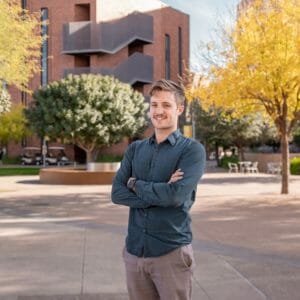One of the many challenges we face in the journey to create a more sustainable planet is that although more people are now aware of the problem of climate change, that awareness does not necessarily lead to a change in behavior. At Arizona State University, student organizations discovered this roadblock when they noticed intensively publicizing information did not result in as much success as they hoped in regards to meeting the university’s sustainability goals. So to address this, Kendon Jung, the Coordinator for Educational Outreach and Student Services and the chair of the City of Tempe sustainability comission came up with an innovative idea: creating a new interdisciplinary class.
“My vision is an interdisciplinary model where psychology, marketing, design, engineering, and sustainability students come together to create community-based interventions for behaviors that we need on campus,” Jung said.
Jung took the idea to Paul LePore, the associate dean of The College of Liberal Arts and Sciences and with his help, it came to life in the classroom last semester with the “Sustainable Behavior Psychology Lab”, a seminar course for undergraduates. Taught by Michelle “Lani” Shiota, an associate professor of psychology, students in the course reviewed previous research on behavior change techniques and then designed real interventions for ASU. The course concluded with the students presenting their interventions to Zero Waste at ASU and Aramark.
“This course was really a new approach for our department, but we relish the opportunity to innovate for a social benefit,” Shiota said. “We explored why it is so hard to change behavior, what the psychological mechanisms involved in successful behavior change are, and what specific strategies we might use to promote sustainability at ASU.”
LePore expressed a similar sentiment.
“Dr. Shiota’s course focusing on the psychology of sustainability and sustainable change is a terrific example of where we can harness the expertise of our faculty and the enthusiasm of our students to tackle real world problems,” he said.
